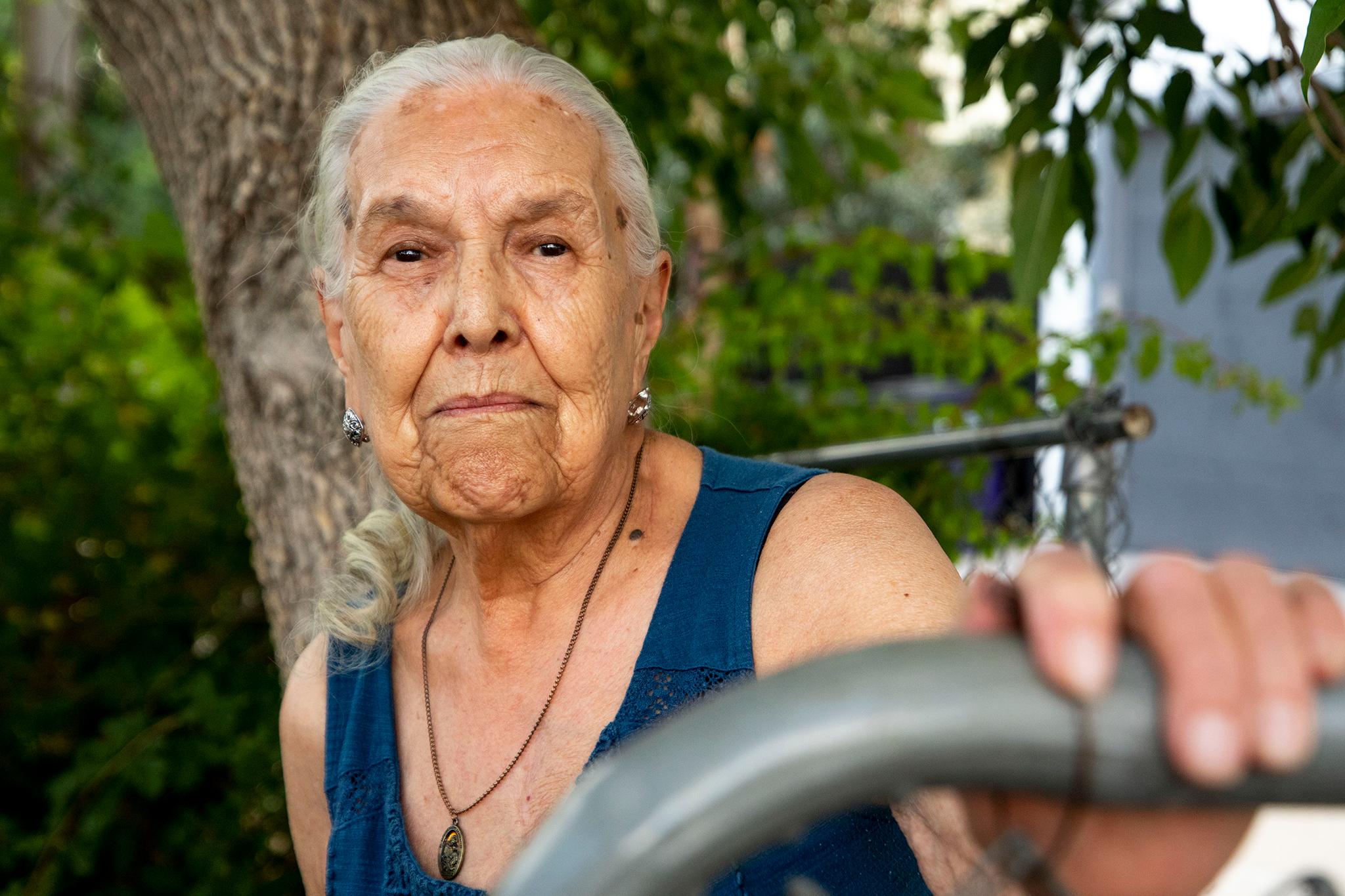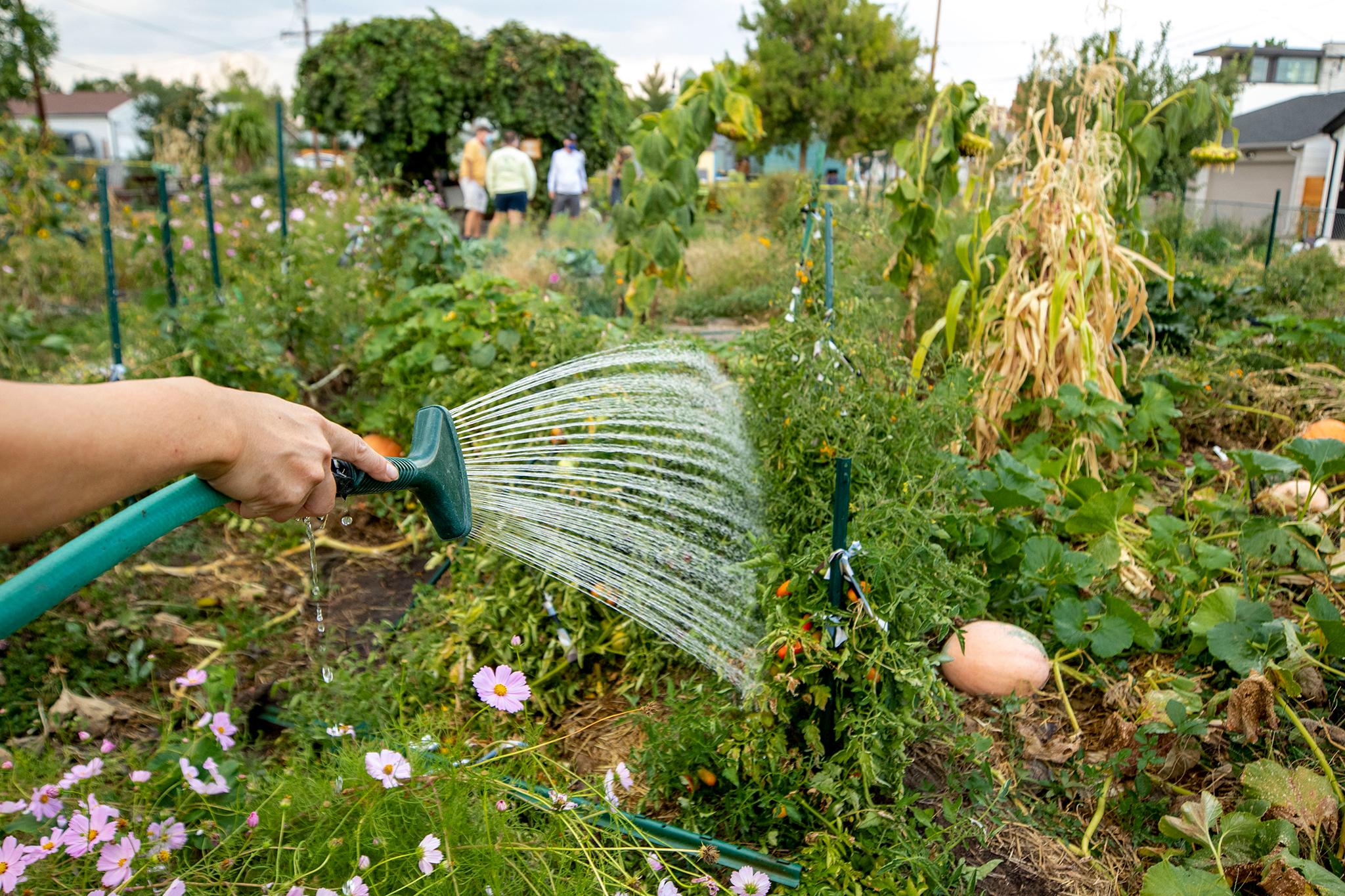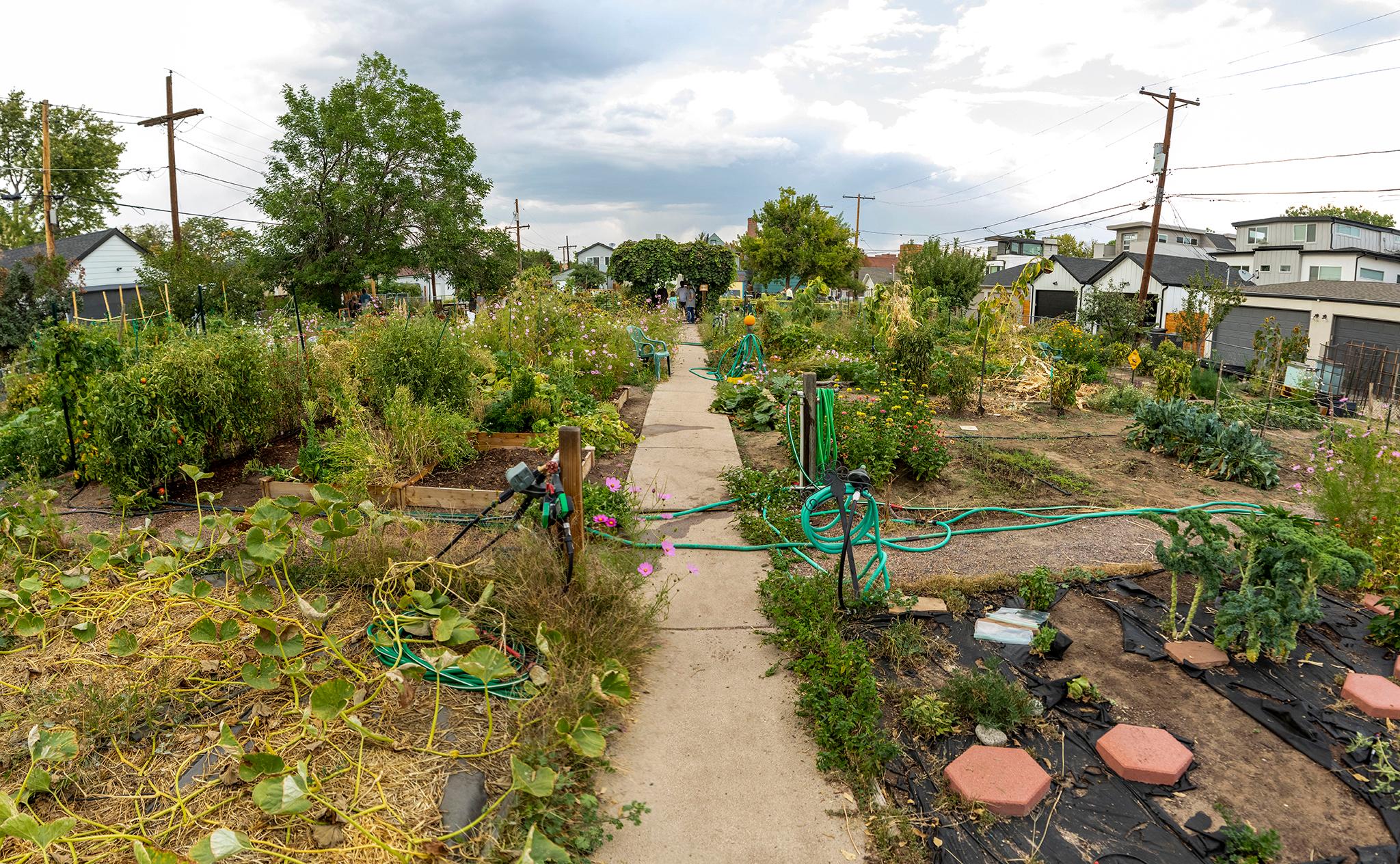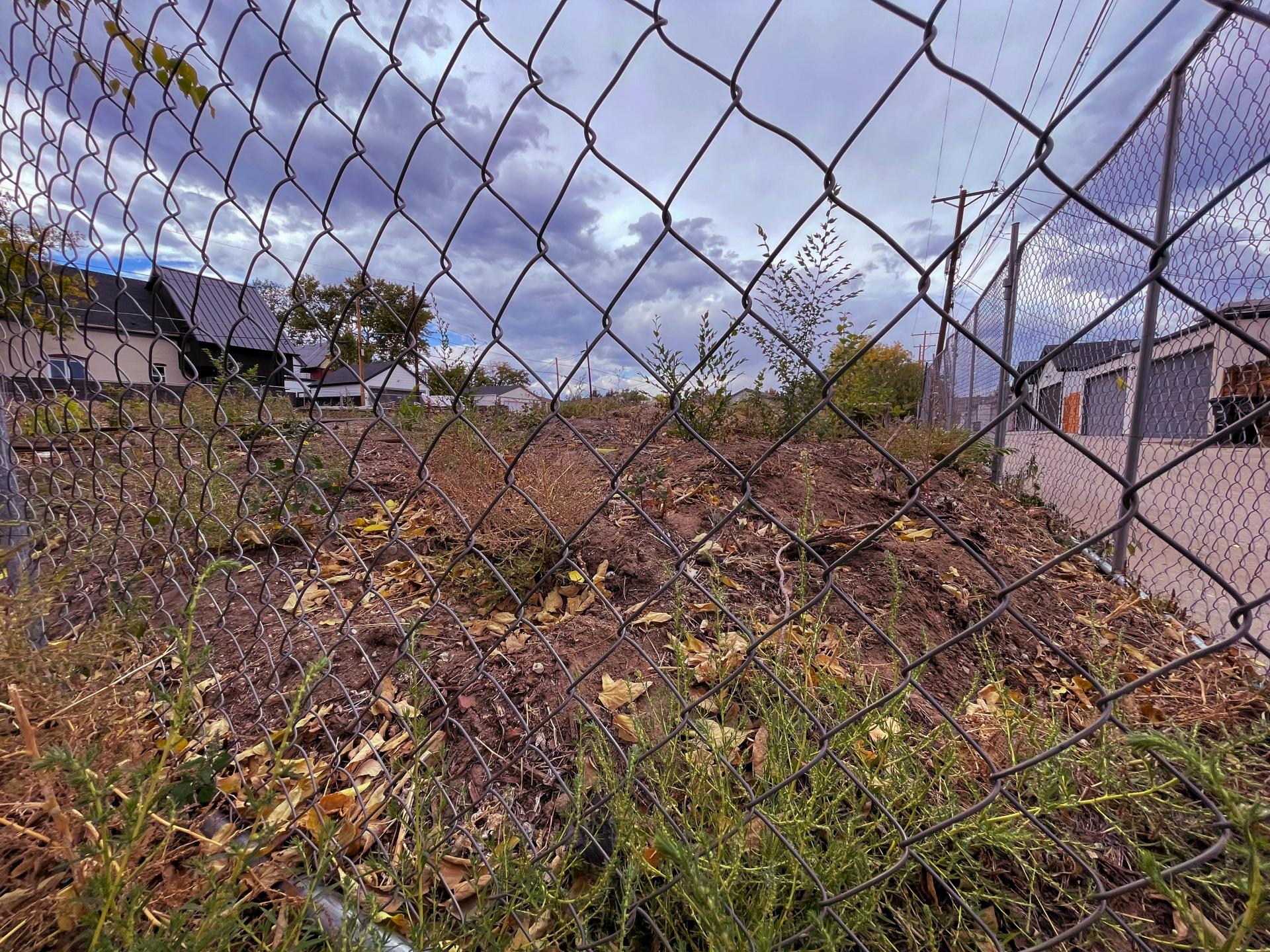A massive patch of fenced-off weeds sits fallow, where El Oasis Community Garden once sprawled over 22,000 square feet, at 35th Ave., between Quivas and Shoshone streets.
The Highland parcel was purchased by Denver Urban Gardens in 1988 for a whopping $1. Over decades, community gardeners brought the land to life, as DUG begame one of the nation's largest community-garden networks.
Then in 2020, the nonprofit's then Executive Director Violeta Garcia, who briefly ran the nonprofit, announced it would sell two-thirds of El Oasis.
The community revolted. Many feared the nonprofit was cashing in on valuable land and selling off green space to developers. Had Denver Urban Gardens been a real-estate grab all along?
The deal was inked in February of 2021, when the land was sold to Caliber Construction for $1.2 million. The developer announced duplexes would soon be coming.
When Executive Director Violeta Garcia announced the deal, neighborhood gardeners were miffed.
"My whole family is just mad," great-grandmother and gardener Trini Zamudio told Denverite at the time.

Garcia said the organization needed to sell the land to get out of debt. The pandemic had hit the organization hard. If the other 188 gardens the organization maintained at the time were to survive, the deal had to be made.
But community members wondered if there was a better way.
"We're professionals. We're creative. We love gardening. We could have brought something, a solution to the table that would have prevented this," sculptor and University of Colorado Denver professor Mike Brohman told Denverite.
Many questioned whether the organization was being mismanaged. Soon, Garcia was out. And a new CEO, Linda Appel Lipsius, was hired. (Disclosure: Lipsius is a board member of Colorado Public Radio, Denverite's nonprofit owner.)
Caliber Construction sat on the land and has since divided it into two plots.
In June of 2022, Caliber sold 1845 W. 35th Ave. to the real estate company United Colorado, LLC, for $1.1 million. United sold it to the developer PLP Holdings a few days later. The plot at 1825 W. 35th Ave. was sold by Caliber to United for another $1.1 million.
PLP Holdings has not responded to Denverite's requests for comment.
"It sounds like they're moving ahead on building what they're zoned and allowed to build there," Lipsius said.
What's left of El Oasis blossoms behind the empty plots -- a reminder of the rich gardens and community that once covered the entire space.
For now, the developable land sits empty.
The sale has given DUG the footing it needed to thrive.
"It allowed us to pay down our debt," Lipsius said. "It allowed us to continue to support the other 188 gardens that we had at the time and rebuild El Oasis into the thriving, beautiful community garden. It is now on the third of the parcel that remains -- which is a pretty standard community garden size for DUG. And we have also made a commitment that the piece of land will never be developed."
Since the sale, the organization's budget has grown from $1.6 to $2.4 million.

"We've shifted our priorities from just gardens," Lipsius said.
The group's still expanding its community gardens network, but by just a couple a year.
Additionally, DUG is using its increased funding to improve its business infrastructure and create food forests, both in existing gardens and on dedicated plots. Those include perennial trees, bushes and vines. At the food forests, neighbors can glean fruit and participate at a more relaxed pace than maintaining an individual garden requires.
The group added six food forests this year and is planning 14 more next year.

Is it possible other DUG gardens could be sold by the nonprofit?
DUG isn't exactly a massive landholder. The nonprofit only owns seven plots of land. Most of the 192 gardens are on public property: parks, schools, housing authorities and the like. That lowers the risk that the gardens will be sold to developers.
"We should never get in that situation again," Lipsius said, and she has plans for how. "We dramatically diversified our funding base. We're working with a lot of new corporate partners and philanthropic partners and building extra revenue streams to create a balanced organization with really tight financial management."
And the organization has no intention to sell the parcels it does own.
"We're not a real estate play at all," Lipsius said. "To the idea that we would just sort of liquidate the network, it's not ours to liquidate."













